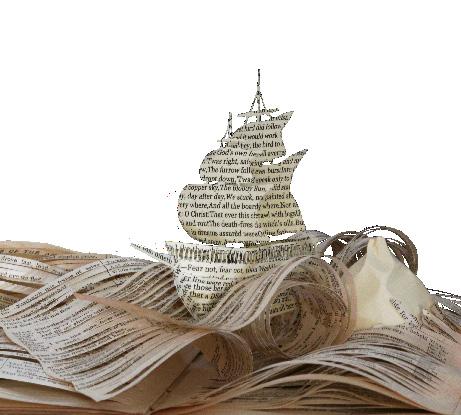7.00pm
Sunday 19 March
Royal Festival Hall





7.00pm
Sunday 19 March
Royal Festival Hall





Welcome to our 2022 / 23 season, Songs of Travel. It is the final instalment of our ‘Six Chapters of Enlightenment’ series here at the Southbank Centre.
The idea of a journey excites us all. Whether it is a new adventure or one we have made dozens of times before. Travel and the idea of leaving home left a deep impression on the British and European mindset in the 17th and 18th centuries. And, of course, it is one of the great literary metaphors with the promise of discovering something about ourselves on the way to our destination.
The 18th century was a whirlwind of correspondences. International navigation was leaping forward with Captain James Cook’s maritime expeditions whilst newspapers, novels and engravings were distributing ideas and images in a manner previously unparalleled. As a result, the intellectual aspiration of the common man gained a wholly new stride. One which would reach beyond the bounds of the immediate and conventional into new realms of existence: far off lands, radical political thought, belief beyond convention and transports of the artistic soul which would make the desperate leap into the passions and turmoil of romanticism. The song of travel eventually becomes the realisation of self as hero in the flight from non-social space to the strange and wonderful of the 19th century: exoticism, opiate dreams, mesmerism, madness and the supernatural.
The music we’ve selected for the season reflects journeys that are physical and of the mind. It is the work of creative thinkers that were able to imagine unknown places through the descriptions of others, to put the fantastical to use to satirise the contemporary, to reimagine the past in new ways, to explore our individual freedom, our sense of collective belonging, and the need to travel to find their own place in the world, a journey many of us still make today.
Thank you for joining us today and supporting not just the OAE but live performance by the whole cultural community. Music by its very existence is about community and shared journeys, an adventure that looks beyond that which divides us to seek joy in common belief.
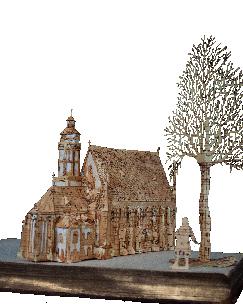
The name of few baroque composers can be associated with such a long and venerable tradition as the name of JS Bach, and few works in music history have been as affected by this kind of tradition to such a degree as the Mass in B minor. For today’s performers, this situation is a great inspiration on the one hand, but on the other hand we are faced with ingrained ideas about the work that have been shaped by the aesthetics of the 19th Century and by the impassioned discourse about the interpretation of Bach’s works during the 20th Century.
The Mass in B minor is an extraordinarily complex work, in which Bach touched upon widely divergent musical genres and compositional techniques. The flattened impression of his music that we have inherited from the 19th Century and a romanticized fascination with symbolism are reflected in the interpretation of Bach’s music to this day.
Performance traditions and the habits of musicians in the 20th and 21st Centuries have become blinkers, preventing us from taking an unbiased view of the music of the past and from ridding ourselves of centuries worth of layers of thoughtlessly repeated clichés and of aesthetic norms passed from one generation to the next. In the case of the Mass in B minor, what is involved is not the discovery of some sort of universal, historically-based interpretive truth, but rather the courage to examine one of the greatest works of music history without being intimidated by its monumentality, and with eagerness to discover its lovely colours in their natural beauty as revealed when the layers of performance tradition are removed.
This introduction is taken from Václav Luks’ note to accompany his recording of the Mass in B minor on Accent (ACC 24283). Translation by Mark Newkirk. You can read the full article on the OAE’s blog.
There will be a pre-concert talk with Václav Luks in conversation with Tommy Pearson at 6.00pm in the Level 5 Function Room, Green Side, Royal Festival Hall.
Sunday 19 March 2023
7.00pm at the Southbank Centre’s Royal Festival Hall
JOHANN SEBASTIAN BACH (1685 – 1750)
Mass in B minor, BWV 232
I Missa
Kyrie
Christe
Kyrie
Gloria
Et in terra pax
Laudamus te
Gratias agimus tibi
Domine Deus
Qui tollis
Qui sedes
Quoniam tu solus sanctus
Cum Sancto Spiritu
II Symbolum Nicenum
Credo in unum Deum
Patrem omnipotentem
Et in unum Dominum
Et incarnatus est Crucifixus
Et resurrexit
Et in Spiritum sanctum
Confiteor
Et exspecto
III Sanctus
Sanctus
Pleni sunt coeli
IV Osanna, Benedictus, Agnus Dei et Dona nobis pacem
Osanna in excelsis
Benedictus
Osanna repetatur
Agnus Dei
Dona nobis pacem
There will not be an interval.
Orchestra of the Age of Enlightenment
Choir of the Enlightenment
Václav Luks director
Julia Doyle soprano
Anna Devin soprano
Hugh Cutting countertenor
Hugo Hymas tenor
Roderick Williams baritone
This concert is supported by Sir Martin & Lady Smith OBE, Nigel Jones & Françoise Valat-Jones, Ian S Ferguson CBE and Dr Susan Tranter
Violins I
Huw Daniel
Daniel Edgar
Rebecca Livermore
Sophie Simpson
Henry Tong
Iona Davies
Violins II
Kati Debretzeni
Rachel Isserlis
Stephen Rouse
Rebecca Harris
Alice Evans
Violas
Max Mandel
Annette Isserlis
Martin Kelly
Kate Heller
Cellos
Catherine Rimer
Mark Walkem
Daisy Vatalaro
Basses
Christine Sticher
Cecelia Bruggemeyer
Flutes
Lisa Beznosiuk
Neil McLaren
Oboe / Oboe d’amore
James Eastaway
Alexandra Bellamy
Oboe
Bethan White
Bassoons
Györgyi Farkas
Damian Brasington
Horn
Roger Montgomery
Trumpets
David Blackadder
Phillip Bainbridge
Matthew Wells
Timpani
Adrian Bending
Organ
Steven Devine
Harpsichord
James Johnstone
Choir of the Enlightenment
Sopranos 1
Emilia Bertolini
Fiona Fraser
Charlotte Mobbs
Daisy Walford
Clover Willis
Sopranos 2
Emily Dickens
Hannah Ely
Daisy Livesey
Bethany Partridge
Amy Wood
Altos
Luthien Brackett
Rebekah Jones
Ruth Kiang
Kim Porter
Tenors
Michael Bell
John Bowen
Jeremy Budd
Oscar Golden-Lee
Basses
Jack Comerford
Michael Lafferty
Greg Skidmore
Philip Tebb
JS Bach’s life was bookended by two great journeys that framed the relative stability of his career: in his youth, an eyewatering walk of 280 miles to Lübeck to see Buxtehude playing the organ in 1706; and in 1747 a gruelling trip from Leipzig to Frederick the Great’s court at Potsdam for a meeting that would result in the magnificent Musical Offering. Both events are illustrative of Bach’s character, and of how it evolved over time, so that by the end of his life he was able to create the Mass in B minor – some of it from much earlier material – as a sort of compendium of his achievements.
Bach’s son CPE Bach wrote of the Lübeck journey in his father’s obituary: ‘At a certain moment here in Arnstadt he had so strong an urge to hear as many good organists as he could that he set out for Lübeck, on foot, in order to hear the famous organist of St Mary’s, Dietrich Buxtehude.’ The journey was retraced and beautifully described by Horatio Clare in his radio broadcast and book, Something of His Art – Walking to Lübeck with JS Bach. Clare writes of features that seem virtually unchanged: ‘In the distance are villages with onion-domed churches; we hear bells at midday from Catholic spires, while the Protestant churches are quiet; in both, the architecture of the ages of faith are perfectly maintained’. The two Churches would find common ground in Bach’s B minor Mass, but at the time he would have been preoccupied by more immediate concerns. Clare wonders: ‘Did he fall into conversation, or hold himself apart? He must have been asked where he was going – on any foot journey someone is bound to enquire. To Lübeck, he surely said, but did he ever say why? Perhaps only another musician would have understood… His youth, purpose and ambition would have given him containment and confidence that did not need conversation to bolster it, but towards the end of the days and at his night stops he would have been ready for some human exchange. No one walks so far in silence.’

Skip to the 1747 journey to Potsdam, and Bach cuts a rather different figure. In contrast with the flamboyant Frederick, who employed CPE Bach at his court, the 62-year-old JS Bach by now represented the old order: sacred music, Germanic precision, learned counterpoint drawing upon recondite traditions. After being buffeted about on his trip from Leipzig, he was announced with the solemn declaration: ‘Gentlemen, old Bach is here.’ The meeting between this rather stubborn composer and the achingly fashionable king was politically charged, too; JS Bach’s patron, the Elector of Saxony, was Frederick’s opponent. Bach was behind enemy lines. Frederick liked to tease his guests and made the mistake of trying to humiliate Bach by setting him an apparently impossible task: to improvise a fugue based on a theme contrived to be unworkable, its intervals too awkward to weave into contrapuntal layers. Bach improvised a three-part fugue on the theme – ‘all those present were seized with astonishment’ – so Frederick pushed further by demanding a six-part fugue, something Bach had never composed let alone improvised. This piqued Bach into going away and writing his unprecedented six-part Ricercar, and the Musical Offering’s feats did not end there: in the canon per tonos the music modulates almost imperceptibly

up a tone each time, creating what Douglas Hofstadter, in Gödel, Escher, Bach, called an ‘Endlessly Rising Canon’ or a ‘Strange Loop’, ending up where it started.
In between these two significant journeys, Bach’s life was fairly neatly divided into long-term positions. In 1708 he was made court organist at Weimar, remaining there for nine years. In 1717, the musical Prince Leopold of Cöthen invited Bach to become his Kappellmeister, and then in 1722 the cantor at St Thomas’s School in Leipzig died; after conducting his St John Passion there, Bach was appointed to the position. He remained in Leipzig for the rest of his life. How could such a man summarise such a career? What could do justice to a figure so determined that he ran his feet ragged seeking musical inspiration from a mentor, or tore-up the rule book to prove a king wrong? Perhaps a great Mass was the only solution. Bach was a Lutheran, for whom a mass usually consisted of just a ‘Kyrie’ and a ‘Gloria’. He had written five Lutheran masses, but needed something grander as a final statement of his prowess in this field. Perhaps the rebellious spirit that defied Frederick’s goading also enjoyed the idea of beating Catholics at their own game. The work was not written to fulfil a patron’s commission, nor for any specific occasion;
it is a reflection of Bach’s devout Christian faith, but is also a portfolio compiled at the end of his life to showcase his range as a composer.

The earliest of Bach’s Lutheran masses, the Missa dating from 1733, forms the basis of the Mass in B minor, which includes the more intricate sections of the Catholic liturgy. Following a troubled time in Leipzig, Bach had dedicated the 1733 Missa to Augustus III or Elector Friedrich August II of Saxony – a recent convert to Catholicism – hoping for patronage at the Dresden court. He referred to the Missa as an ‘insignificant example of my musical skill’, but clearly held the music in high esteem: he hung on to the score, sending only the parts to the Elector, and later reworked elements of the Missa’s ‘Gloria’ into his Christmas cantata, Gloria in excelsis Deo, BWV 191. Then, towards the end of the 1740s, Bach returned to the 1733 Missa, augmenting the original with further movements to create the Mass in B minor. This title was never used by Bach, however. Some time after his death it became known as a ‘Missa Catholica’; CPE Bach archived the work as the Great Catholic Mass; and the title of Mass in B minor became established in the 19th Century. The work was almost certainly not performed in its entirety in Bach’s lifetime, and it was first published in 1845. Curiously, Bach organised the manuscript of his Mass into four folders; ever-practical, he may have thought it wise to divide this vast work into manageable portions suitable for separate performances. Part 1, ‘Missa’, comprises the ‘Kyrie’ and ‘Gloria’; Part 2, ‘Symbolum Nicenum’, contains the ‘Credo’; Part 3, ‘Sanctus’, is devoted to just that movement; and the remaining movements are in a folder called ‘Osanna – Benedictus –Agnus Dei et – Dona nobis pacem’.
The Mass begins with a powerful fourbar declaration, followed by a fugal ‘Kyrie
eleison’ scored for five-part chorus, pairs of flutes and oboes d’amore, bassoon and strings. This imposing opening is contrasted with a graceful ‘Christe eleison’ for soprano duet and strings, before we hear the second ‘Kyrie’, again in an intricately layered fugal texture and in keeping with the austere ‘stile antico’ (when Baroque composers emulated the purity of Renaissance music).
The largest section of the work, the ‘Gloria’, is structured symmetrically. It opens with a five-part chorus for which the woodwinds, strings and continuo are joined by trumpets and drums. This concise opening is contrasted with the rich and stately ‘Et in terra pax’, after which comes a soprano aria, ‘Laudamus te’, decorated by an ornate violin line. The ‘Gratias agimus tibi’ is another ‘stile antico’ four-part chorus, the music of which may date back to Bach’s cantata Wir danken dir, Gott, wir danken dir (BWV 29, 1731). The central point of the ‘Gloria’ is occupied by the ‘Domine Deus’, a duet for soprano and tenor, with muted violins and violas and a flute melody interlaced with the vocal lines. For the exquisite ‘Qui tollis peccata
mundi’ Bach adapted music from his cantata Schauet doch und sehet, ob irgendein Schmerz sei (BWV 46, 1723). The beautiful aria ‘Qui sedes ad dexteram Patris’ is for mezzo-soprano and oboe d’amore, and a bass solo follows at ‘Quoniam’, with colourful orchestration including independent writing for bassoons and solo horn. This leads seamlessly into the exultant chorus, ‘Cum Sancto Spiritu, in Gloria Dei Patris, Amen’, scored for the same forces as the opening chorus of the ‘Gloria’ in order to unify this section of the Mass.
Two of the choruses in the ‘Credo’ include quotes from Gregorian chant, the first appearing in the tenor line before being developed into a brilliant five-part choral texture. The perky four-part chorus ‘Patrem omnipotentem’ derives from Bach’s cantata Gott, wie dein Name, BWV 171 (1729). It is followed by an intricate duet for soprano and alto (countertenor), ‘Et in unum Dominum’, in which the pair of oboes d’amore add colour, preceding the sombre, long-breathed ‘Et incarnus est’. Another early cantata, Weinen, Klagen, Sorgen, Zagen (BWV 12, 1714), forms the basis of the poignant four-part ‘Crucifixus’, its mournful tone accentuated by the addition of flutes. There may have been a (now lost) instrumental precedent for the heavily instrumental ‘Et resurrexit’, its triumphant five-part chorus reinforced by a powerful ensemble including oboes, flutes, trumpets and drums. The oboe d’amores are again to the fore in the bass aria ‘Et in Spiritum Sanctum’, intertwining with the solo part. The majestic ‘Confiteor’

is a tour de force of ‘stile antico’ writing in five-part counterpoint, in which Bach again quotes plainchant. This section culminates dramatically in the final chorus of the ‘Credo’, ‘Et exspecto resurrectionem mortuorem’, which includes material from Bach’s cantata, Gott, man lobet dich in der Stille, BWV 120, written before 1730.
The music of the ‘Sanctus’ dates back as far as Christmas 1724, and is generously scored for six-part chorus with three trumpets, three oboes, drums, strings and continuo. The ‘Osanna’ includes music from Bach’s cantata Preise dein Glücke (BWV 215, 1734), and is the only section in the whole Mass for which Bach employs a double choir. This passage is articulated twice, sandwiching a lyrical ‘Benedictus’ for solo tenor introduced by an elaborate flute solo (sometimes played on the violin).
The ‘Agnus Dei’ represents one of the pinnacles of the Mass, its haunting alto (countertenor) solo based on an aria from Bach’s Ascension Oratorio, BWV 11 of 1735. The Mass culminates in the joyful four-part ‘Dona nobis pacem’, which echoes music used in the ‘Gratias agimus tibi’ section of the ‘Gloria’ – a repetition that creates a sense of wholeness and resolution at the end of the work. Bach was blind by the time he finished his Mass and his travelling days were behind him, but his mind’s extraordinary capacity for seeking out musical pathways that connected past and present, Catholic and Protestant, remained unmatched.






Chorus
Kyrie, eleison.
Duet (Soprano 1 / Soprano 2)
Christe, eleison.
Chorus Kyrie, eleison.
Chorus
Gloria in excelsis Deo.
Chorus
Et in terra pax hominibus bonae voluntatis.
Aria (Soprano)
Laudamus te, benedicimus te, adoramus te, glorificamus te.
Chorus
Gratias agimus tibi propter magam gloriam tuam.
Duet (Soprano / Tenor)
Domine Deus, Rex coelestis, Deus Pater omnipotens.
Domine Fili unigenite, Jesu Christe, altissime.
Domine Deus, Agnus Dei, Filius Patris.
Chorus
Qui tollis peccata mundi, miserere nobis.
Qui tollis peccata mundi, suscipe deprecationem nostram.
Aria (Countertenor)
Qui sedes ad dextram Patris, miserere nobis.
Aria (Baritone)
Quoniam tu solus sanctus, tu solus Dominus, tu solas altissiumus, Jesu Christe.
Lord, have mercy.
Christ, have mercy. Lord, have mercy.
Glory to God in the highest.
And on earth peace to men of good will.
We praise thee, we bless thee, we adore thee, we glorify thee.
We give thee thanks for thy great glory.
O Lord God, heavenly King, God the Father almighty. O Lord, the only-begotten son, Jesus Christ, the most high. Lord God, Lamb of God, Son of the Father.
Who takest away the sins of the world, have mercy on us. Who takest away the sins of the world, receive our prayer.
Who sittest at the right hand of the Father, have mercy on us.
For thou alone art holy, thou alone art the Lord, thou alone, O Jesus Christ, art most high.
Chorus
Cum Sancto Spiritu in gloria Dei Patris, Amen.
Chorus
Credo in unum Deum.
Chorus
Credo in unum Deum, Patrem omnipotentem, factorum coeli et terrae, visibilium omnium et invisibilium.
Duet (Soprano 1 / Soprano 2)
Et in unum Dominum, Jesum Christum, Filium Dei unigenitum et ex Patre natum ante omnia secula. Deum de Deo, lumen de lumine, Deum verum de Deo vero, genitum, non factum, consubstantialem Patri, per quem omnia facta sunt. Qui propter nos homines et propter nostram salutem descendit de coelis.
Chorus
Et incarnatus est de Spiritu sancto ex Maria virgine, et homo factus est.
Chorus
Crucifixus etiam pro nobis sub Pontio Pilato, passus et sepultus est.
Chorus
Et resurrexit tertia die secundum scripturas; et ascendit in coelum, sedet ad dextram Dei Patris, et iterum venturus est cum gloria judicare vivos et mortuos, cujus regni non erit finis.
Aria (Baritone)
Et in Spiritum sanctum, Dominum et vivificantem, qui ex Patre Filioque procedit; qui cum Patre et Filio simul adoratur et
Together with the Holy Ghost, in the glory of God the Father, Amen.
I believe in one God.
I believe in one God, the Father almighty, maker of heaven and earth, and of all things visible and invisible.
And in one Lord, Jesus Christ, the only begotten Son of God, born of the Father before all ages. God of God, light of light, true God of true God, begotten, not made, of one being with the Father, by whom all things were made. Who for us men and for our salvation came down from heaven.
And was made flesh by the Holy Ghost, of the Virgin Mary, and was made man.
He was crucified also for us, under Pontius Pilate, he suffered and was buried.
And on the third day he rose again according to the scriptures; and ascended into heaven, he sitteth at the right hand of God the Father, and he shall come again with glory to judge the living and the dead, whose kingdom shall have no end.
And in the Holy Ghost, the Lord and giver of life, who proceedeth from the Father and the Son; who with the Father and the Son
conglorificatur; qui locutus est per Prophetas. Et unam sanctam catholicam et apostolicam ecclesiam.
Chorus
Confiteor unum baptisma in remissionem peccatorum. Et exspecto resurrectionem mortuorum.
Chorus
Et exspecto resurrectionem mortuorum. et vitam venturi seculi.
Amen.
Chorus
Sanctus, sanctus, sanctus, Dominus Deus Sabaoth.
Pleni sunt coeli et terra gloria ejus.
Chorus
Osanna in excelsis.
Aria (Tenor)
Benedictus qui venit in nomine Domini.
Chorus
Osanna in excelsis.
Aria (Countertenor)
Agnus Dei qui tollis peccata mundi: miserere nobis.
Agnus Dei qui tollis peccata mundi: miserere nobis.
Chorus
Dona nobis pacem.
together is worshipped and glorified; who spoke by the prophets. And in the one holy catholic and apostolic church.
I acknowledge one baptism for the remission of sins. And I look for the resurrection of the dead.
And I look for the resurrection of the dead. and the life of the world to come. Amen.
Holy, holy, holy, Lord God of hosts.
Heaven and earth are full with his glory.
Hosanna in the highest.
Blessed is he who comes in the name of the Lord.
Hosanna in the highest.
Lamb of God, who takest away the sins of the world: have mercy on us.
Lamb of God, who takest away the sins of the world: have mercy on us.
Grant us peace.









the Orchestra of the Age of Enlightenment; Bach’s Geist und Seele with the Oxford Bach Soloists; Handel’s Messiah with Instruments of Time and Truth and Edward Higginbottom; Purcell Odes for a Queen with The English Concert and Kristian Bezuidenhout, and a performance of Bach and Handel arias with the Hanover Band and Laurence Cummings.
A former choral scholar at St John’s College, Cambridge, Hugh Cutting is a recent graduate of the Royal College of Music where he was a member of the International Opera Studio. On graduating, he was awarded the Tagore Gold Medal, presented by King Charles III. In the autumn of 2021, Hugh became the first countertenor to win the Kathleen Ferrier Award and is the first countertenor to become a BBC New Generation Artist (2022 – 24).
In the 2021 / 22 season Hugh was a member of Les Arts Florissants 10th Jardin des Voix and received critical acclaim for his portrayal of Arsace in Handel’s Partenope conducted by William Christie. Further highlights included his Carnegie Hall debut singing Bach’s St Matthew Passion with the Orchestra of St Luke’s and Bernard Labadie; Refugee in Dove’s Flight and Bertarido in Handel’s Rodelinda with the RCM International Opera Studio, Vivaldi’s Stabat Mater at the London Handel Festival with Adrian Butterfield; Pergolesi’s Stabat Mater with the Southbank Sinfonia; Tavener’s The Hidden Face with the City of London Sinfonia; Bach’s St Matthew Passion with
This season Hugh makes his debut at Opernhaus Zürich singing Monteverdi madrigals in Christian Spuck’s ballet setting. Upcoming concert engagements include multiple appearances at the Wigmore Hall alongside Iestyn Davies and Ensemble Guadagni, La Nuova Musica, The English Concert, and The Sixteen; a world premiere with the BBC Philharmonic and an appearance at the Oxford Lieder Festival; Handel’s Messiah with The Sixteen and Harry Christophers and with the City of Birmingham Symphony Orchestra and Adrian Lucas; Bach’s Christmas Oratorio with Monteverdi Choir & Orchestras and John Eliot Gardiner; Bach’s B minor Mass with The Orchestra of the Age of Enlightenment and Vaclav Luks; Bach’s St Matthew Passion with the Finnish Radio Orchestra and Nick Collon and in a European tour with Collegium Vocale Gent and Philippe Herreweghe, as well as multiple projects with Les Arts Florissants and William Christie including Polinesso in Handel’s Ariodante and Arsace Partenope.
Song is central to Hugh’s ambition, and he seeks to expand the possibilities of countertenor repertoire in this sphere. In 2022 / 23 he appears in recital at the Wigmore Hall, Ryedale Festival, and at the Thames Recital Series with ‘Untethered’, a programme based on Michael A. Singer’s

book ‘The Untethered Soul’, which centres around the concept of liberation, namely from the thoughts and perspectives that disturb our daily lives. Many of these works will be recorded as part of Hugh’s involvement in the BBC New Generation Artist scheme for later broadcast on Radio 3. He frequently collaborates with pianist George Ireland, lutenist Danny Murphy and composer Piers Connor Kennedy both in recital and concert.
Hugh works regularly with SoundVoice UK and composer Hannah Conway, most recently performing at Snape Maltings and King’s Place alongside Roderick Williams and Lucy Crowe in a project exploring identity and voice loss in terminal health conditions.
He has recorded Purcell Royal Odes and Birthday Odes for Queen Mary with The King’s Consort and Robert King alongside Iestyn Davies and Carolyn Sampson, and Lamento with Iestyn Davies and Fretwork for Signum Classics.
In 2022 / 23, Anna Devin will perform the title role in Lucia di Lammermoor in Hamburg as well as Fiordiligi in Cosi fan tutte with the Irish National Opera.

In recent years, Anna Devin’s successes have included Elisabetta in Maria Stuarda with the Irish National Opera; Almirena in Rinaldo with Glyndebourne on tour and Michal in Saul in Paris Théâtre du Châtelet; Melissa in Amadigi with Garsington Opera; Celia in Lucio Silla in Madrid; the title role of Semele with the Händel-Festspiele; Tusnelda in Arminio at the International Handel Festival in Göttingen; Michal in Saul at Glyndebourne and Cleopatra in Giulio Cesare for the Early Opera Company, in which her Cleopatra was described as: ‘one of the finest London has heard’ (Opera Magazine). She has sung Galatea in Acis and Galatea for Mozartwoche Salzburg; the title role in Handel’s Rodelinda with the Moscow Philharmonic; Nannetta in Falstaff and Lauretta in Gianni Schicchi for Covent Garden; Susanna in Le Nozze di Figaro for Welsh National Opera, Glyndebourne Tour and Scottish Opera; Sophie in Werther and Zerlina in Don Giovanni for Scottish Opera; la bergère Louis XV and la chauve-souris in L’enfant et les sortilèges for La Scala; Poppea in Agrippina for Opera Collective, Ireland; and Clotilde in Faramondo for Brisbane Baroque, which earned her the Best Supporting Singer in an Opera at the 2015 Helpmann Awards, Australia.
Irish soprano Anna Devin is widely admired for her “vocal control, artistry and musicodramatic intelligence” (Opera News). An alumna of the Royal Opera House’s Jette Parker Young Artist programme, the Royal Irish Academy of Music, Guildhall School of Music and Drama, and the National Opera Studio, Ms Devin has gained recognition across the world for her work in the Baroque and Bel Canto repertoire.
Other roles have included Governess in Turn of the Screw, la Comtesse Adèle in Le Comte Ory, Marie in La fille du Régiment, Morgana in Alcina, Gretel in Hänsel und Gretel and Ilia in Idomeneo.
A frequent concert performer throughout Europe and the USA, Ms Devin’s repertoire encompasses a vast range of sacred and secular works and she has appeared at the London Handel, Göttingen Handel, Lausanne Bach, Brighton Early Music and Belfast festivals, the BBC Proms
and Carnegie Hall. She has worked with the Vienna Philharmonic, Hallé, RTÉ NSO, Ulster and Minnesota orchestras and Houston, Charlotte and Seattle symphonies, among others. Recent season highlights, Mozart Concert Arias with the RTÉ National Symphony Orchestra conducted by Harry Bicket; and a concert tour performing Pergolesi’s Stabat Mater and Mozart’s Exsultate Jubilate with frequent collaborator Marc Minkowski and Les Musiciens du Louvre. Other conductors she has worked with include Sir William Christie, Laurence Cummings, Christian Curnyn, Ottavio Dantone, Ivor Bolton, Sir Colin Davis, Yannick Nézet-Séguin and Sir Antonio Pappano.
Anna Devin’s recordings include Arminio and Faramondo for Accent from the International Händel Festspiele Gottingen; Mozart in London, Il re Pastore and Mitridate, Re di Ponto with Classical Opera for Signum Classics; and ‘Arias for Benucci’ with Arcangelo for Hyperion. She was also an Associate Artist with Classical Opera, with whom she records and performs regularly.
In addition to her work on stage, Ms Devin is proud to be an Ambassador for the British Dyslexia Association. She has also been open with the public through the media and events about growing up with dyslexia, saying: “Being different is not a bad thing. Not fitting in with the crowd is a blessing as we all have our own journey, and being forced to find your own path brings originality.” She is passionate about nurturing new talent and gives masterclasses at the Royal Irish Academy of Music, Dublin, as well as coaching at the Royal Academy Opera Course, London.
When not on stage, Ms Devin is a keen runner and enjoys keeping fit and relaxing with her husband, young children and Norwegian Forest cat in their Bedfordshire, UK home.
Julia DoyleBorn and educated in Lancaster, Julia read Social and Political Sciences alongside a Choral Scholarship at Cambridge. She made her professional debuts singing Messiah with The King’s Consort at the Cadogan Hall and with the Britten Sinfonia / Polyphony at St John’s Smith Square and continues strong relationships with both. Since then she has performed all over the world and become established as a specialist soprano in Baroque repertoire.
She has worked with conductors including Frieder Bernius, Sir John Eliot Gardiner, Matthew Halls, Philippe Hereweghe, Richard Tognetti, Alfredo Bernadini, Györgi Vashegyi, Robert King, Nicholas Kraemer, Juanjo Mena, Sir Roger Norrington, Arsys Bourgogne, Gianandrea Noseda and Trevor Pinnock.
Highlights include performances with the BBC Philharmonic, Monteverdi Choir and Orchestra, Britten Sinfonia, Royal Philharmonic, RTE Symphony, Scottish Chamber Orchestra, London Handel Orchestra, The English Concert, The King’s Consort, London Bach Society, Orchestra of the Age of Enlightenment, The Sixteen, Collegium Vocale, Netherlands Bach Society, Le Concert Lorrain, Bayerische Rundfunk, Kammerchor Stuttgart, Australian Chamber Orchestra, Seville Baroque Orchestra, B’Rock, J.S. Bach Stiftung, Tafelmusik, Music of the Baroque

and at the Wigmore Hall and Cadogan Hall, London and Concertgebouw, Amsterdam.
Recent and future engagements include Mozart Mass in C minor in Toronto, Vivaldi Juditha Triumphans at the Concertgebouw, Palace of Versailles and Theater an der Wien, Handel Aci, Galatea e Polifemo at Halle Handel Festival, recordings of Bach St John Passion with J.S. Bach Stiftung, tours of Europe with The Monteverdi Choir and Orchestra, concerts with the OAE, English Concert and La Serenissima at the early music festival in Valetta, a tour and recording of Messiah with the Rias Kammerchor, concerts at the Halle Handel Festival with the MDR Chor, Tisbe at the Buxton Festival, Handel Occasional Oratorio and Alexander’s Feast both with Bayerische Rundfunk and Ensemble Cantatio, concerts in the UK and Scotland with the Dunedin Consort, recitals in London and at the York Early Music Festival as well as an appearance at the 2021 BBC Proms with the Monteverdi Choir and Orchestra and performances at the Wigmore Hall with La Nuova Musica and the London Handel Orchestra.
She recently released her first solo recording of Purcell with the lutenist, Matthew Wadsworth.
baroque and renaissance repertoire enjoying collaborations with the foremost practitioners of the genre.
Recent performances include Purcell and Handel with the Freiburg Baroque Orchestra directed by Kristian Bezuidenhout; Handel La Resurrezione with The English Consort and Harry Bicket; Monteverdi Vespers and Bach St Matthew Passion with Dunedin Consort and John Butt; Handel Il Trionfo del Tempo e del Disinganno with the Croatian Barokk Ensemble (Lawrence Cummings) and Haydn Die Schöpfung with Les Arts Florissants (William Christie) in New York.
Amongst Hugo’s opera roles to date are Indian Boy and Fame in Purcell The Indian Queen with Opera de Lille as well as concert performances of the composer’s King Arthur with The Gabrieli Consort and at the Teatro Real, Madrid; Eurimaco Il ritorno d’Ulisse in patria at the Maggio Musicale Fiorentino and Servus in the premiere of Georgio Battistelli Julius Caesar at the Teatro dell’Opera di Roma. He also took part in a tour of a semi-staged Handel Semele with the Monteverdi Choir under Sir John Eliot Gardiner which included his début at Teatro alla Scala, Milan.
Hugo studied Music at the University of Durham. He is a former Britten-Pears Young Artist and was a member of the Orchestra of the Age of Enlightenment
‘Rising Stars’ scheme, appearing with the group on many occasions.
British tenor Hugo Hymas is much in demand for his interpretations of the
Amongst his 2022 / 23 season highlights are Royal Concertgebouw Orchestra and Tempere Philharmonic débuts singing the St Matthew Passion; a tour of the B minor Mass with the Orchestra of the Age of Enlightenment and Václav Luks and performing and recording Purcell with Arcangelo and Jonathan Cohen.

Václav Luks studied at the Pilsen Conservatoire, the Academy of Performing Arts in Prague, and crowned his training with the specialised study of early music at the Schola Cantorum Basiliensis in Switzerland in the studios of Jörg-Andreas Bötticher and Jesper Christensen in the fields of historical keyboard instruments and historical performance practice. During his studies in Basel and in the years that followed, he gave concerts all over Europe and overseas as the principal horn player of the Akademie für Alte Musik in Berlin.
After returning from abroad in 2005, he transformed the chamber ensemble Collegium 1704, which he had already established during his studies, into a baroque orchestra, and he founded the vocal ensemble Collegium Vocale 1704. Under his leadership, the ensembles perform at prestigious festivals and at renowned concert halls. Their recordings have earned both public success and critical acclaim, including awards such as Trophées, Diapason d’Or, Preis der deutschen Schallplattenkritik or Edison Klassiek.
In addition to his intensive work with Collegium 1704, Václav Luks also collaborates with other distinguished ensembles including the Netherlands Bach Society, Orchestre Philharmonique de Monte-Carlo, Camerata Salzburg, the Akademie für Alte Musik in Berlin and La
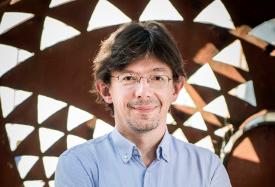
Cetra Barockorchester Basel, from 2022 also with Händel & Haydn Society Boston. At a benefit concert for the restoration of the Cathédrale Notre-Dame de Paris, Václav Luks conducted the Orchestre nationale de France. The French radio station France Musique devoted five episodes of the programme Grands interpretes de la musique classique to Václav Luks in 2021. In May 2021, he conducted Collegium 1704 in the opening concert of the international festival Prague Spring.
He has worked with internationally renowned soloists including Karina Gauvin, Vivica Genaux, Ann Hallenberg, Martina Janková, Philippe Jaroussky, Magdalena Kožená, Bejun Mehta, Sarah Mingardo, Adam Plachetka, and Andreas Schöll.
Václav Luks has collaborated on operatic and theatrical performances with such stage directors as Willi Decker, Ondřej Havelka, Ursel Herrmann, Louise Moaty, J. A. Pitínský, and David Radok. Recently, he participates on the international co-production of Händel’s opera Alcina directed by Jiří Heřman. Under his direction, Collegium 1704 recorded the music for Petr Václav’s documentary Zpověď zapomenutého (Confession of the Vanished) and for his upcoming feature film Il Boemo about the life of Josef Mysliveček, where Václav Luks also serves as chief music advisor.
His activities have played an important part in the revival of interest in the works of Czech composers such as Jan Dismas Zelenka and Josef Mysliveček, and in strengthening CzechGerman cultural links through rediscovery of the two countries’ shared musical heritage.
In June 2022, he received the Order of Arts and Letters (Ordre des Arts et des Lettres) from Ambassador Alexis Duterteur at a ceremony at the French Embassy in Prague. The Order is awarded by the French Minister of Culture for significant merits in the field of art and literature.
Roderick Williams is one of the most sought after baritones of his generation. He performs a wide repertoire from baroque to contemporary music, in the opera house, on the concert platform and is in demand as a recitalist worldwide.

He enjoys relationships with all the major UK opera houses and has sung opera world premieres by David Sawer, Sally Beamish, Michael van der Aa, Robert Saxton and Alexander Knaifel. Recent and future engagements include the title role in Eugene Onegin for Garsington, the title role in Billy Budd with Opera North, Papageno for Covent Garden, and productions with Cologne Opera, English National Opera and Netherlands Opera.
Roderick sings regularly with all the BBC orchestras and all the major UK orchestras, as well as the Berlin, London and New York Philharmonic Orchestras,
Deutsches Symphonie-Orchester Berlin, Orchestre Philharmonique de Radio France, Ensemble Orchestral de Paris, Accademia Nazionale di Santa Cecilia in Rome, Cincinnati Symphony, London Symphony and Bach Collegium Japan amongst others. His many festival appearances include the BBC Proms (including the Last Night in 2014), Edinburgh, Cheltenham, Bath, Aldeburgh and Melbourne Festivals.
Roderick Williams has an extensive discography. He is a composer and has had works premiered at the Wigmore and Barbican Halls, the Purcell Room and live on national radio. In December 2016 he won the prize for best choral composition at the British Composer Awards. From 2022 / 23 season he takes the position of Composer in Association of the BBC Singers.
He recently completed a three year odyssey of the Schubert song cycles culminating in performances at the Wigmore Hall and has subsequently recorded them for Chandos. Future releases include more Schubert, Schumann in English as well as works by Vaughan Williams.
He was Artistic Director of Leeds Lieder in April 2016, is Artist in Residence for the Royal Liverpool Philharmonic Orchestra from 2020/21 for two seasons and won the RPS Singer of the Year award in May 2016. He was awarded an OBE in June 2017.
In 1986, a group of inquisitive London musicians took a long hard look at that curious institution we call the Orchestra, and decided to start again from scratch. They began by throwing out the rulebook. Put a single conductor in charge? No way. Specialise in repertoire of a particular era? Too restricting. Perfect a work and then move on? Too lazy. The Orchestra of the Age of Enlightenment was born.
And as this distinctive ensemble playing on period-specific instruments began to get a foothold, it made a promise to itself. It vowed to keep questioning, adapting and inventing as long as it lived. Residencies at the Southbank Centre and the Glyndebourne Festival didn’t numb its experimentalist bent. A major record deal didn’t iron out its quirks. Instead, the OAE examined musical notes with ever more freedom and resolve.


That creative thirst remains unquenched. The Night Shift series of informal performances are redefining concert formats. Its former home at London’s Kings Place has fostered further diversity of planning and music-making. The ensemble has formed the bedrock for some of Glyndebourne’s most groundbreaking recent productions.
In keeping with its values of always questioning, challenging and trailblazing, in September 2020, the OAE became the resident orchestra of Acland Burghley School, Camden. The residency – a first for a British orchestra – allows the Orchestra of the Age of Enlightenment to live, work and play amongst the students of the school.

Now more than thirty years old, the OAE is part of our musical furniture. It has even graced the outstanding conducting talents of Elder, Rattle, Jurowski, Iván Fischer and John Butt with a joint title of Principal Artist. But don’t ever think the ensemble has lost sight of its founding vow. Not all orchestras are the same. And there’s nothing quite like this one.
 Andrew Mellor
Andrew Mellor


Chief Executive
Crispin Woodhead
Chief Operating Officer
Edward Shaw
Finance & Governance Director
Pascale Nicholls
Projects Director
Jo Perry
Education Director
Cherry Forbes
Marketing Director
Doug Buist
Acting Development Director
Natalie Docherty
Education Officer
Andrew Thomson Projects Manager
Sophie Adams
Finance Manager
Fabio Lodato
Head of Digital Content
Zen Grisdale
Head of Individual Giving
Alisdair Ashman
Box Office & Data Manager
Paola Rossi
Development Manager
Kiki Betts-Dean
Development Officer
Luka Lah
Projects Officer
Ed Ault
Marketing Officer
Dora Tsang
Development Officer
Sabrina Pui Yee Chin
Accounts Officer
Chloe Tsang
Social Media & Digital Content Officer
Shyala Smith
Orchestra Consultant
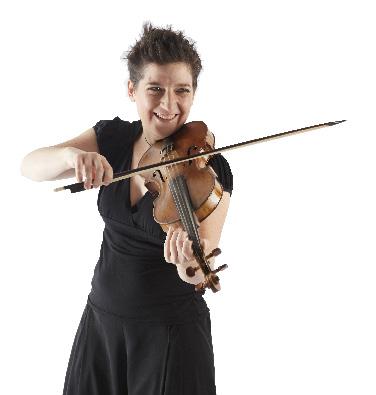
Philippa Brownsword
Choir Manager
David Clegg
Librarian
Roy Mowatt
Leaders
Huw Daniel
Kati Debretzeni
Margaret Faultless
Matthew Truscott
Players’ Artistic Committee
Adrian Bending
Steven Devine
Andrew Roberts
Katharina Spreckelsen
Christine Sticher
Principal Artists
John Butt
Sir Mark Elder
Ádám Fischer
Iván Fischer
Vladimir Jurowski
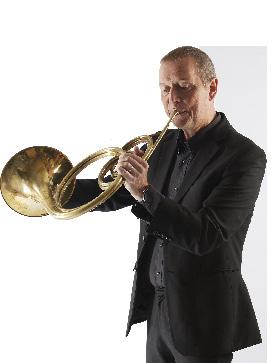
Sir Simon Rattle

Sir András Schiff
Emeritus Conductors
William Christie
Sir Roger Norrington
Life President
Sir Martin Smith
Board of Directors
Imogen Overli [Chair]
Adrian Bending
Daniel Alexander
Steven Devine
Denys Firth
Adrian Frost
Alison McFadyen
David Marks
Rebecca Miller
Andrew Roberts
Katharina Spreckelsen
Matthew Shorter
Christine Sticher
Dr. Susan Tranter
Crispin Woodhead
OAE Trust
Adrian Frost [Chair]
Mark Allen
Paul Forman
Steven Larcombe
Imogen Overli
Rupert Sebag-Montefiore
Maarten Slendebroek
Sir Martin Smith
Caroline Steane
Jessica Kemp
Honorary Council
Sir Martin Smith [Chair]
Sir Victor Blank
Edward Bonham Carter
Cecelia Bruggemeyer
Nigel Jones
Max Mandel
Marshall Marcus
Julian Mash
Greg Melgaard
Roger Montgomery
Susan Palmer OBE
Jan Schlapp
Diane Segalen
Susannah Simons
Lady Smith OBE
Emily Stubbs
Rosalyn Wikinson
Mark Williams
Principal Patrons
John Armitage Charitable Trust
Denys and Vicki Firth
Adrian Frost
Imogen Overli
Sir Martin and Lady Smith OBE
Season Patrons
Julian and Annette Armstrong
Nigel Jones and Françoise Valat-Jones
Philip and Rosalyn Wilkinson
Mark and Rosamund Williams
Project Patrons
Ian S Ferguson CBE and Dr Susan Tranter
Bruce Harris
Selina and David Marks
ABS Circle
Sir Victor and Lady Blank
Peter Cundill Foundation
Sir Martin and Lady Smith OBE
Aria Patrons
Steven Larcombe
Peter and Veronica Lofthouse
Stanley Lowy
Gary and Nina Moss
Rupert Sebag-Montefiore
Maarten and Taina Slendebroek
Caroline Steane
Eric Tomsett
Chair Patrons
Mrs Nicola Armitage
– Education Director
Victoria and Edward Bonham Carter
– Principal Trumpet
Katharine Campbell
– Violin
Anthony and Celia Edwards
– Principal Oboe
James Flynn KC
– Co-Principal Lute / Theorbo
Paul Forman
– Co-Principal Cello / Violin /
Co-Principal Horn
Jonathan Gaisman
– Viola
Michael and Harriet Maunsell
– Principal Keyboard
Christina
– Flute
Jenny and Tim Morrison
– Second Violin
Andrew Nurnberg
– Co-Principal Oboe
Professor Richard Portes
CBE FBA
– Co-Principal Bassoon
John and Rosemary Shannon
– Principal Horn
Sue Sheridan OBE
– Education
Crispin Woodhead and Christine Rice
– Principal Timpani
Education Patrons
Stephen and Patricia Crew
Sir Timothy and Lady Lloyd
Susan Palmer OBE
Andrew and Cindy Peck
Professor Richard Portes
CBE FBA
Charles and Julia Abel Smith
Damaris Albarrán
Noël and Caroline Annesley
Sir Richard Arnold and Mary Elford
Hugh and Michelle Arthur
George and Kay Brock
Catherine and Barney Burgess
David and Marilyn Clark
David Emmerson
Claire Espiner
Jonathan Parker Charitable Trust
Roger Heath MBE and Alison Heath MBE
Peter and Sally Hilliar
Madeleine Hodgkin
Kristin Konschnik
Moira and Robert Latham
Sir Timothy and Lady Lloyd
Roger Mears and Joanie Speers
David Mildon
In Memory Of Lesley Mildon
John Nickson and Simon Rew
Andrew and Cindy Peck
Stephen and Penny Pickles
Peter Rosenthal
Michael Spagat
Roger and Pam Stubbs
Emily Stubbs and Stephen McCrum
Paul Tarrant and Jenny Haxell
Simon and Karen Taube
Shelley Von Strunckel
Mr J Westwood
Jessica Kemp and Alex Kemp
Breandán Knowlton
Young Associate
Natalie Docherty
Young Patrons
Marina Abel Smith
Marianne and William Cartwright-Hignett
David Gillbe
Sam Hucklebridge
Peter Yardley-Jones
Gold Friends
Michael Brecknell
Gerard Cleary
Mr and Mrs C Cochin De Billy
Chris Gould
Alison and Ian Lowdon
Dennis and Sheila Baldry
Haylee and Michael Bowsher
Tony Burt
Christopher Campbell
Sir Anthony and Lady Cleaver
David Cox
Stephen and Cristina Goldring
Rachel and Charles Henderson
Malcolm Herring
Patricia Herrmann
Rupert and Alice King
Anthony and Carol Rentoul
Stephen and Roberta Rosefield
Bridget Rosewell
David and Ruth Samuels
Her Honour Suzanne Stewart
Susannah Simons
Tony Baines
Penny and Robin Broadhurst
Graham and Claire Buckland
Dan Burt
Michael A Conlon
Mrs SM Edge
Mrs Mary Fysh
Mr Simon Gates
Martin and Helen Haddon
Ray and Liz Harsant
The Lady Heseltine
Mrs Auriel Hill
Rose and Dudley Leigh
Julian Markson
Stuart Martin
Richard I Morris Jr
Mike Raggett
Hugh Raven
Alan Sainer
Matthew and Sarah Shorter
Mr and Mrs Tony Timms
Mrs Joy Whitby
David Wilson
Harold Hyam Wingate Foundation
Henocq Law Trust
The 29th May 1961 Charity
Stanley Picker Trust
Thriplow Charitable Trust
Rising Stars Supporters
Julian and Annette Armstrong
Old Possum’s Practical Trust
The 29th May 1961 Charity
Fenton Arts Trust
The Garrick Charitable Trust
The Michael Marks
Charitable Trust
Thriplow Charitable Trust
Albert and Eugenie Frost Music Trust
Apax Foundation
Arts Council England
Dreamchasing Foundation
Esmee Fairbairn Foundation
The John Lyon’s Charity
National Foundation For Youth Music
Orchestras Live
Paul Hamlyn Foundation

Peter Cundill Foundation
The Brian Mitchell Charitable Settlement
The Britford Bridge Trust
The Charles Peel
Charitable Trust
The Geoffrey Watling Charity
The Linbury Trust
The Patrick Rowland Foundation
Steel Charitable Trust
Mark Allen Group
Champagne Deutz
Swan Turton
The Ann and Peter Law OAE Experience gives gifted period instrument musicians the chance to work alongside our orchestral players. The year-long scheme is aimed at players who have already finished or are finishing their studies and allows participants to be mentored by our musicians as they participate in a variety of events across the year. This important work in career development ensures that the scholarship of historically informed practice is passed on from generation to generation.
In February this year, we ran our annual OAE Academy, a crucial part of our Experience scheme where musicians
are mentored intensively by OAE players. In a three-day programme at St John’s Smith Square and Acland Burghley School, Margaret Faultless, Leo Duarte and Roger Montgomery worked intensively with our new cohort on a rich programme of classical repertoire including Haydn Symphonies Nos 31, 39 and 72 as well as works by Gossec, JC Bach and Wanhal.
In addition to the OAE Academy programme, the OAE Experience scheme also offers participants lessons with OAE principals, professional engagement with the OAE Experience ensemble and OAE Education, access to rehearsals, and discounted tickets for events.

‘The way the orchestra members worked with us in the rehearsal made me notice even more what makes the difference between good musicians and brilliant musicians.’
– OAE Experience violinist 2023
Violin
Aleksandra Kwiatkowska, Alexandra
López Arca, Elana Cooper, Emma Williams, Guillermo Santonja di Fonzo, Guo Yu, JennieMarie Wszolek, Rebecca Kohler Baratto
Viola
Angel Munoz-Vella, Helena Reguera
Cello
Majella Münz, Matylda Adamus, Samuel Ng
Double Bass
Giuseppe Ciraso-Calì
Flute
Beth Stone
Oboe
Maria Jesus Moreno Ciudad
Bassoon
Javier Sánchez Castillo
Horn
Nivanthi Karunaratne, Peter McNeill
This year we are pleased to announce the expansion of this scheme with a new initiative, OAE Young Associates. These students receive coaching or masterclass sessions, lessons with OAE principals as well as access to rehearsals and discounted tickets for events.
Clarinet
Brenda Lopez, Carolina Guiducci, Hugo Lau, Sergio Sánchez Martin
Keyboard Continuo
Apolline Khou, Dominika Maszczynska, Jorge Silva, Matthew Brown
Timpani
Lewis Blee
Acland Burghley School is a home for our players, staff and governance. It is also a crucial hub for our educational programme. Here we engage students in a range of different programmes that support curricular and extra-curricular activity from dance projects to our own unique jamming sessions, Musical Connections, and our Dreamchasing Young Producers programme. We bring the school community into our musical world through workshops, access to rehearsals and concerts and carefully curated Encounter Sessions where students have their own unique introduction to the OAE.
For many years, the OAE has been committed to a national programme of engagement in underserved communities. In 2023, that work continues in key residencies in North Walsham, Ipswich, York, Durham and King’s Lynn with community concerts, workshops, programmes for early years (TOTS), and specially curated programmes for schools (The Magic Flute and The Life of the Sea) based on the core repertoire of the OAE.
The OAE has long-established relationships with many schools across London. In harmony with the national plan, the OAE will offer The Magic of Mozart and The Life of the Sea to young people from Camden, Brent, Merton, Wandsworth and Ealing.
A key priority for the OAE Education team is to respond meaningfully to the additional educational needs of young people. We are proud to be working with students at Swiss Cottage Special School, Camden, and Thomas Worsley Special School, Ipswich, as part of the Musical Connections project that is also a crucial component of our residency at Acland Burghley School.
Alongside a choir of 1,500 in a musical spectacular (Something Special) at the Royal Albert Hall, we will be sharing music created by young people from Great Ormond Street and University College Hospital Schools as well as students from Swiss Cottage Special School.
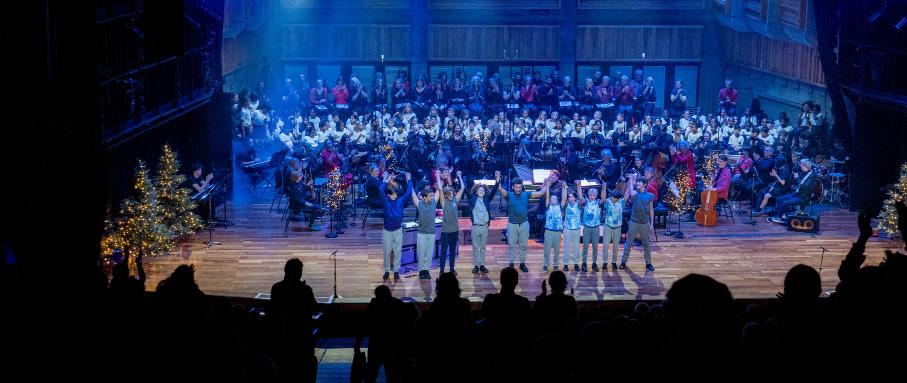
Throughout the year, we present specially curated events for families. These include OAE TOTS concerts at the Southbank Centre (Pack Your Bags), OAE TOTS FUNharmonics workshops with the LPO and The Magic Flute at the York Rise Street Party in our home borough of Camden.
The OAE is committed to developing the next generation of talent in the following programmes: OAE Experience scheme to help aspiring young professional musicians develop in historically informed performance practice.
OAE Rising Stars is a biennial competitive programme for debutant singers, offering high-profile opportunities with the OAE on the international stage.
Suffolk Young Strings Project is a project to encourage players to create new compositions inspired by baroque music.
Our participants come from a wide range of backgrounds and we pride ourselves in working flexibly, adapting to the needs of local people and the places where they live. The extensive partnerships we have built up over many years ensure maximum and lasting impact.
We take inspiration from the OAE’s repertoire, instruments and players. This makes for a vibrant, challenging and engaging programme where everyone is involved; players, animateurs, composers, participants, teachers, partners and supporters all have a valued voice.
We do hope you can join us for some of these events! Please contact us if you would like further details on how to attend or support these projects.
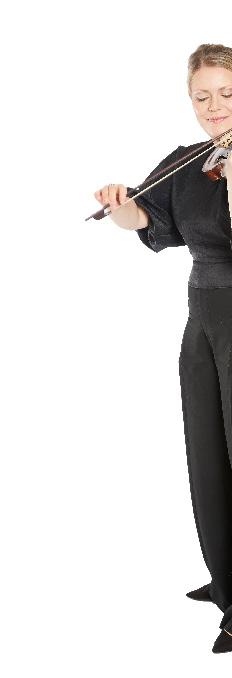
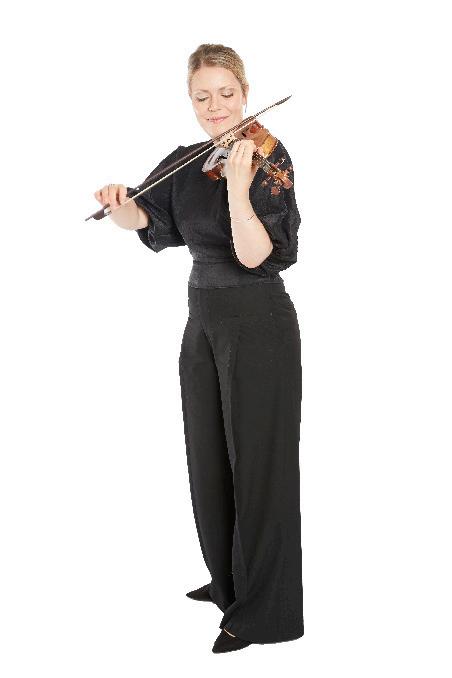
... our new free-to-all digital community.

Like all the best clubs we want to make it a place where you’ll explore the music you’re a fan of, enjoy special offers, get involved in competitions and other activities, be part of our creative conversation and have plenty of fun.
Find out more and sign-up now at oae.co.uk/club

Be in our Club.
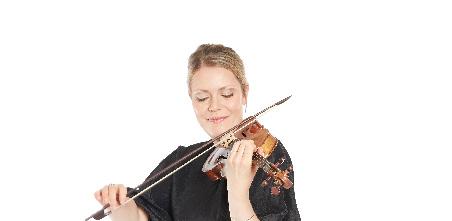
In September 2020, we took up permanent residence at Acland Burghley School in Camden, North London. The residency –a first for a British orchestra – allows us to live, work and play amongst the students of the school.

Three offices have been adapted for our administration team. We use the Grade II-listed school assembly hall as a rehearsal space, with plans to refurbish it under the school’s ‘A Theatre for All’ project. The school isn’t just our landlord or physical home. Instead, it allows us to build on twenty years of work in the borough through OAE’s long-standing partnership with Camden Music. Having already worked in eighteen of the local primary schools that feed into ABS, the plans moving forward are to support music and arts across the school into the wider community. Our move underpins our core enlightenment mission of universal engagement, of access without frontiers.
What do backflips, smoke machines and baroque drums all have in common?
Answer: our first video collaboration with Acland Burghley students. We teamed up with year 10 students who performed a dance that they choreographed for their GCSE exam, accompanied by us performing Rameau’s ‘Danse des
Sauvages’ from Les Indes Galantes. After taking inspiration from baroque dances on YouTube and being drawn to the distinctive rhythmic pulse in the Rameau, the pupils sparked enthusiastic discussion with our players to allow the choreography and music to evolve hand in hand. They also had their say in the direction and recording of the music video, which you can watch on our YouTube channel.
We brought The Moon Hares, an opera for young families which we commissioned in 2019, into the school hall and performed it alongside pupils from ABS as well as Gospel Oak and Kentish Town primary schools. The electrifying performance included music both old and new, with sections from Purcell’s 17th century opera Dioclesian mixed with original, modern music by James Redwood.
There’s also been a bustle of activity away from the camera in our ongoing private classroom education. We’ve delivered numerous interactive workshops for all students in Years 7, 8 and 9, including an exploration of the orchestra’s instruments, illustrated sessions on blues and jazz compositional techniques as part of curriculum studies and a study a day for all GCSE music students on Bach’s Brandenburg Concerto No.4.
The value of our residency in Acland Burghley School can be realised in many ways beyond the immediate practice of orchestral musicianship.
One of the key objectives in our mission is to lift aspirations and broaden horizons for life beyond school. We want to help students leave school with richer CVs and stronger professional prospects.
One great way to do that is to mentor the next generation in all those things we have learned as an organisation. At the start of the 2021 / 2022 school year, we launched our Young Producers’ programme in which we offer mentoring, training and work-placement apprenticeship so that the young people in our new community acquire essential skills in management and production, from budgets, compliance and risk assessment to camera operation and stage design.
We are proud of our first cohort, who have already learned so much and become a key part of our working routine. They will one day graduate as accredited producers
and become the mentors, at our side, for future recruits.
More than just an extra-curricular enterprise, this is a programme that we expect to connect with sixth-form education in the new government T Level examination programme.
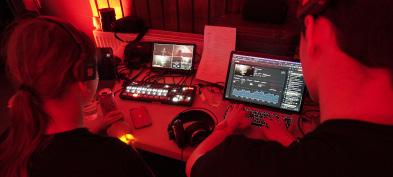
Armin Eorsi
Harvey O’Brien
Iremide Onibonoje
Jessica Sexton-Smith
Matas Juskevicius
Michael Hau
Nathan Kilby
Raphael Thornton
Riley Silver
Sidney Crossing
Sophia Vainshtok
Tom Cohen
Daniel Miliband
Jaeden Ferritto
Sacha Cross
Daniel Wilton-Ely
Ines Whitaker
We’re the largest arts centre in the UK and one of the nation’s top visitor attractions, showcasing the world’s most exciting artists at our venues in the heart of London. We’re here to present great cultural experiences that bring people together, and open up the arts to everyone.
The Southbank Centre is made up of the Royal Festival Hall, Queen Elizabeth Hall, Purcell Room, Hayward Gallery, National Poetry Library and Arts Council Collection. We’re one of London’s favourite meeting spots, with lots of free events and places to relax, eat and shop next to the Thames.
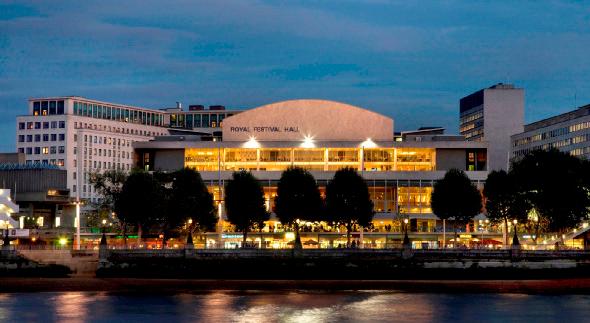
We hope you enjoy your visit. If you need any information or help, please ask a member of staff. You can also write to us at Southbank Centre, Belvedere Road, London SE1 8XX, or email hello@southbankcentre.co.uk
Subscribers to our email updates are the first to hear about new events, offers and competitions. Just head to our website and sign up.
Without the generosity of our Friends, the OAE would not exist.
When you become an OAE Friend, you join us in bringing great music to life. We then give you a front-row and behind-the-scenes view of our work, so that you can see the impact that your donation really makes. This includes supporting our ambitious season of concert performances, digital productions on OAE Player, improving access to music through our Education programme, and our community work at Acland Burghley School.
Whether you wish to watch the rehearsals or get to know the players, a Friends membership offers a heightened OAE concert-going experience and allows you to support the orchestra you love. With your help, we can keep the music playing.

Become a Friend for as little as £50 a year and receive the following benefits:
• Priority booking
• Access to open rehearsals
• Get to know the players
• Regular updates from the orchestra.
To become a Friend, scan the QR code, visit oae.co.uk/support-us or contact us at development@oae.co.uk or 020 8159 9317

5 April
Mozart on the Road: Part 1 with Kristian Bezuidenhout (fortepiano)
18 May
Mozart on The Road: Part 2 with Jean-Guihen Queyras (cello)

7 & 8 June
Princess Ida, or Castle Adamant with John Wilson (conductor)
Chamber music down a local pub.
25 April, Brixton
The Blues Kitchen


Mission: to explore our place in the cosmos guided by the intergalactic genius of JS Bach. Each monthly event features one of Bach’s cantatas, and other choral and instrumental works, alongside a talk by an eminent astronomer.
Guest speakers include Dr Sheila Kanani (Royal Astronomical Society, 26 March).
It’s 1784. Mozart is at the peak of his fame. His Vienna concerts are sell outs while a Mozart premiere is the must have for the modern city. Hear three works from this remarkable year with soloist Kristian Bezuidenhout.
Travel made Mozart an international superstar. As a youngster his incessant touring of Europe’s capitals, from London to Prague, made him the most famous musician in the world. In the 1780s his work was in great demand across the continent. It was Mozart’s success that inspired Haydn – who Mozart first met in 1784 – to leave Eisenstadt after so long.
The story goes that he wrote the ‘Linz’ Symphony in just four days after a request from the mayor of the town who heard Mozart and Constanze had stopped on their way to Vienna.
The Piano Concerto No 17 is likely to have been premiered at one of Mozart’s selfproduced concerts in Vienna, which often took place in unusual locations. The final piece on the programme, the idiosyncratically scored quintet for piano, oboe, clarinet, horn and bassoon, comes from another of those popular Vienna concerts that year.
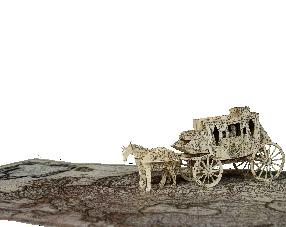
7.00pm
Wednesday 5 April
Southbank Centre’s Queen Elizabeth Hall

